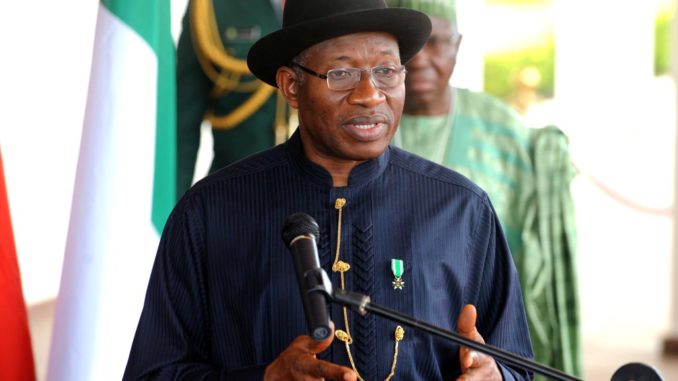
BY WEALTH DICKSON OMINABO
Down the Southern part of Nigeria is a humble man with a temperament of peace. With a political philosophy of humanism, he goes about preaching peace to the world and urging his friends, brothers and of humanity to see peace as their kinsmen and harmony as their in- law.
He is a fellow who lives out the attributes of the beatitude daily. He scores the reproach of defeat and vilification just to maintain the climate of peace in his environment. He is a sermonist, he speaks in the manner of John Donne, Martin Luther King Jnr and Desmond Tutu. Although not a full-time member of the ecclesiastics, his messages are always refreshing and didactic.
Recently in Abuja and Yenagoa, I listened to him speak, his messages tonics for national peace. At a time when the most popular messages by politicians have been sermons of ‘body bags’ and ‘shoot at sight.’ He continues to give sermons of peace and love. Even when friends and associates go to him with itching ears, wanting to make remarks that will send a strong signal to his political detractors who have taken upon themselves the iniquity of insulting him at every opportunity and assassinate his character, his utterances are always seasoned with the salt and savour of love.
In Abuja, about a fortnight ago in a conference organised by the Goodluck Jonathan Foundation (GJF), he spoke alongside Bishop Matthew Hassan Kukah, Gen. Abdulsalami Abububakar, Dr. Amos Sawyer, Dr. Fidele Sarassoro and Prof Al-Hassan Conteh on peaceful elections and national development. He spoke on the link between peace and national prosperity as well as the reproach of conflict and wars. The minutes that he spoke, were seconds of attention, penitence and orientation in the hearts of the pew. It was like listening to Charles Spurgeon preach his sermon of grace or watching Billy Graham on one of his evangelical outreaches.
Like a revivalist he spoke, on the need for peace and good governance which are the issues of his heart and his foundation. Hear him: “The search for solutions to Africa’s seemingly intractable challenges is at the centre of the Foundation’s interest on the question of leadership and good governance. It is a known fact that Africa’s relatively slow growth and poor performing economies are linked to the preponderance of conflicts. What many patriotic Africans will also not deny is the fact that at the root of most of the conflicts ravaging the continent is the desperation that often characterise the struggle for power.
“No doubt, there is a strong nexus between the struggle for power and national development. There is a vicious cycle in Africa where the struggle for political power leads to conflicts that bring up poor governance and creates hardship which fuels the struggle for change of leadership; thus, creating further conflicts and poor leadership. ”
Like an Apostle on a great commission Dr. Goodluck Jonathan called Africans to repentance.
“ It is my considered view that as African leaders, we must change our approach and disposition towards stewardship. We must get to the stage where we should be more interested in developing our people, rather than ruling or just governing them.
“The ten most developed nations on this earth are those countries that experience the least conflicts while the ten least developed countries, many of them here in Africa, are the once wallowing in the worst form of conflicts. The lesson in this existential reality is that any leader who is committed to the development of his country will do everything to save it from turmoil and conflicts. ”
The most interesting part of the sermon to many was when Dr. Jonathan, perhaps a good student of the Pauline Epistle, spoke in the epistolary form. Just like Paul writing to Timothy of the expectations of church leaders(bishop), he said:
” A development-minded leader is visionary and selfless. He does not seek power at all cost and will not wield it for its own sake… There is no gainsaying that when politicians resort to desperate measures in the bid to occupy important political positions, they run the risk of plunging their countries into serious crises that often lead to loss of lives, degradation of values as well as destruction of private and public assets.
“These breeds of politicians often ignore the fact that to be patriotic is to love your country and be prepared to live and die for her honour, reputation, freedom, progress and the ascendancy of the common good. You can restore destroyed infrastructure almost to its former state or even better, but you cannot easily repair people’s psyche, reconcile aggrieved persons and restore hope in a nation, once they are damaged in destructive leadership struggles. “
On Monday this week, when youths of the Niger Delta region led by the President of the Ijaw Youth Council (IYC), Barr. Pereotubo Oweilaemi paid him a courtesy call. Dr. Jonathan re-enforced his message of peace; charging the youths to prioritise peace always especially during the elections. His message was a call for democratic humanism or better put a charge for Nigerians to imbibe the spirit of ubuntu.
“Anytime someone dies extra-judicially it reduces the integrity of the country. So, if our security personnel are interested in peace, especially during this electioneering, then they must do everything to suppress extra-judicial killings; because when one person is killed unlawfully, it affects everyone.”
As we go for elections beginning from this weekend, leaders and followers alike should take to heart the sermons of Jonathan and when he said no ambition is worth his blood.
Ominabo is an Abuja-based journalist
Twitter @wealthdickson
END

Be the first to comment